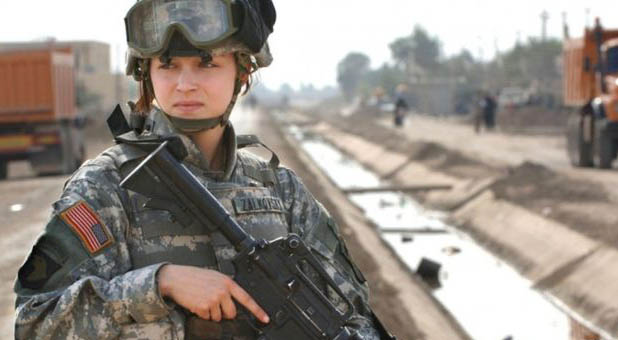Congressman’s Draft Bill May Have Backfired
Nearly three months ago, when U.S. Rep. Duncan Hunter, a Marine Corps veteran who served in Iraq and Afghanistan, introduced legislation to require that women register for the selective service, he did it because he opposes the notion that women should be in front-line combat roles.
“It’s wrong and irresponsible to make wholesale changes to the way America fights its wars without the American people having a say on whether their daughters and sisters will be on the front lines of combat,” he said at the time. “If this administration wants to send 18- to 20-year-old women into combat, to serve and fight on the front lines, then the American people deserve to have this discussion through their elected representatives.”
That plan may have backfired Wednesday morning when the House Armed Services Committee voted narrowly to advance the Draft America’s Daughters Act out of committee, making it eligible for consideration by the full House. If adopted, the legislation would require registration for women no later than 90 days after the enactment of the measure.
When he introduced the legislation, Hunter said it’s “unfortunate” he needed to introduce the bill to force a national conversation on the role of American women in combat. He followed through on the suggestion he wouldn’t vote for the bill, but according to the Military Times, some of his Republican colleagues broke ranks to vote it out of committee Reps. Joe Heck (R-Nev.), Chris Gibson (R-N.Y.), and Martha McSally (R-Ariz.) joined Democrats in voting for the measure in committee. All of them are also Iraq War veterans. McSally, in fact, suggested that women could serve a number of roles—not exclusive to infantry—if a draft was needed.
The last time the draft was implemented was in 1973. Since then, only active duty, reserve and National Guard units have been deployed in combat roles. But recently, the leaders of the Marine Corps and Army suggested women should be required to register for the draft through the Selective Service System, prompting Hunter’s legislation.
“The administration made its decision to open all combat specialties without regard for the research and perspective of the Marine Corps and special operations community, or without consideration or care for whether the draft would have to be opened to both men and women,” he said at the time. “This discussion should have occurred before decision making of any type, but the fact that it didn’t now compels Congress to take a honest and thorough look at the issue.”
Hunter hasn’t responded to Wednesday’s vote. If the House should ultimately pass the bill, it would have to be taken up by the Senate, as well. It’s likely to be considered as part of the annual Defense Authorization Act, which isn’t expected to be considered until the fall.




























































